Reporter's Diary: Mud slung, hands wrung
On March 13, a day after the worst civil aviation disaster of the country, a Bangladesh Biman plane was getting ready to land at Kathmandu's Tribhuvan International Airport, the scene of the crash.
Just when it was time to land, the pilot informed the passengers that there would be a one-hour delay. As the flight hovered, the passengers seemed a little uncomfortable; trepidation was thick in the air.
Finally, when the greenlight to land was given, the plane began its descent. As the wheels slammed onto the runway jolting everyone on board, many could be heard giving an audible gasp. The fear was very much fresh.
Leading up to the flight, the air crash was the dominant topic of conversation. It continued after landing.
Prem Thapa Magar, managing director of Glory Himalayan Club, was providing SIM cards to the new arrivals. After a few minutes, he went out to get some fresh air. Catching up with him, I asked about the disaster the day before. “Things like this never happen,” he said. He then whipped out his phone, turned on his 4G, and showed a video of the rescue mission after the crash. One of those on board had been flung out of the window, still strapped to their seat. It was a sign of the severity of the impact.
In the city, the atmosphere was no different. Bikram, a local journalist, spoke of the traffic being light on the day. It seemed like a pall of gloom had descended on the city but Bikram said it could also be the presidential elections which had just concluded.
No overtaking and no horns. It almost seemed peaceful.
As we travelled through the Kathmandu Valley, the place where ancient civilisation met a modern one, I wonder how March 12 would be remembered in Nepal's history. Would the impact of the day be gauged from looking around? The answer to that question came when we reached.
Lalitpur (Patan) Dinesh, a resident of the area came out to greet us. He had just heard of a funeral in the area. According to him, three people from the locality had died in the crash.
As evening came, we went to Maitighar Mandala, in Kathmandu. It was a community area in the middle of three major roads. Here, students from all over the country had gathered to observe a candle light vigil for the victims.
Around 10-12 students huddled together trying to light around 50 candles. The wind would not allow it, but they were committed and refused to give up. Seeing them struggle, a bunch of boys came and formed a tight circle, leaving no room for a breeze to sneak in.
Once the candles were lit, they all bowed their heads and closed their eyes. They were praying. In the same area, another vigil had just started. That one was led by the Nepal Students Union.
Padam Bhattrai, a member of the union, said they were remembering the students who had lost their lives in the crash. "Our party president has asked the leaders to provide free treatment and monetary compensation to all those affected."
Many other vigils by different students took place at the same location and continued till 8:00pm.
By then, the city was going to sleep. A few restaurants were open. In each, groups of people could be seen together, talking about the day's event. The president's victory though was overshadowed by the crash.
The toxicity of the blame game also seemed to have seeped into everyday life. The Bangladeshis were adamant that the air traffic control tower was to blame while most of the Nepalese believed it was the pilot. Rumors of what went on gushed all over...the pilot was intoxicated, it was a failed attack and so on.
The incessant mud-slinging among the various bodies involved though hasn't had much affect on everyday relations.
But it's a matter of time.
Newly paved roads took us back home. No longer did anyone worry about blackouts. Nepal had come far and even a devastating earthquake had only been a stumble and not a fall.
For now, looking at the restaurants housed in earthquake damaged buildings reminded me of the country's resilience. It is an idea that also breeds a form of camaraderie between Bangladesh and Nepal: resilience, a dirty word coined to absolve everyone else of their blame.
In Nepal, the belief is that a thorough investigation needs to be conducted. The nation is on the rise and incompetency cannot be tolerated. Bangladesh should feel the same. Flinging mud and wringing hands have to stop.

 For all latest news, follow The Daily Star's Google News channel.
For all latest news, follow The Daily Star's Google News channel. 

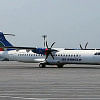

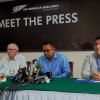
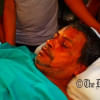
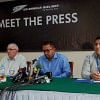

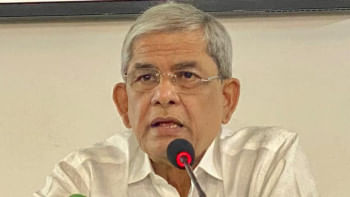
Comments